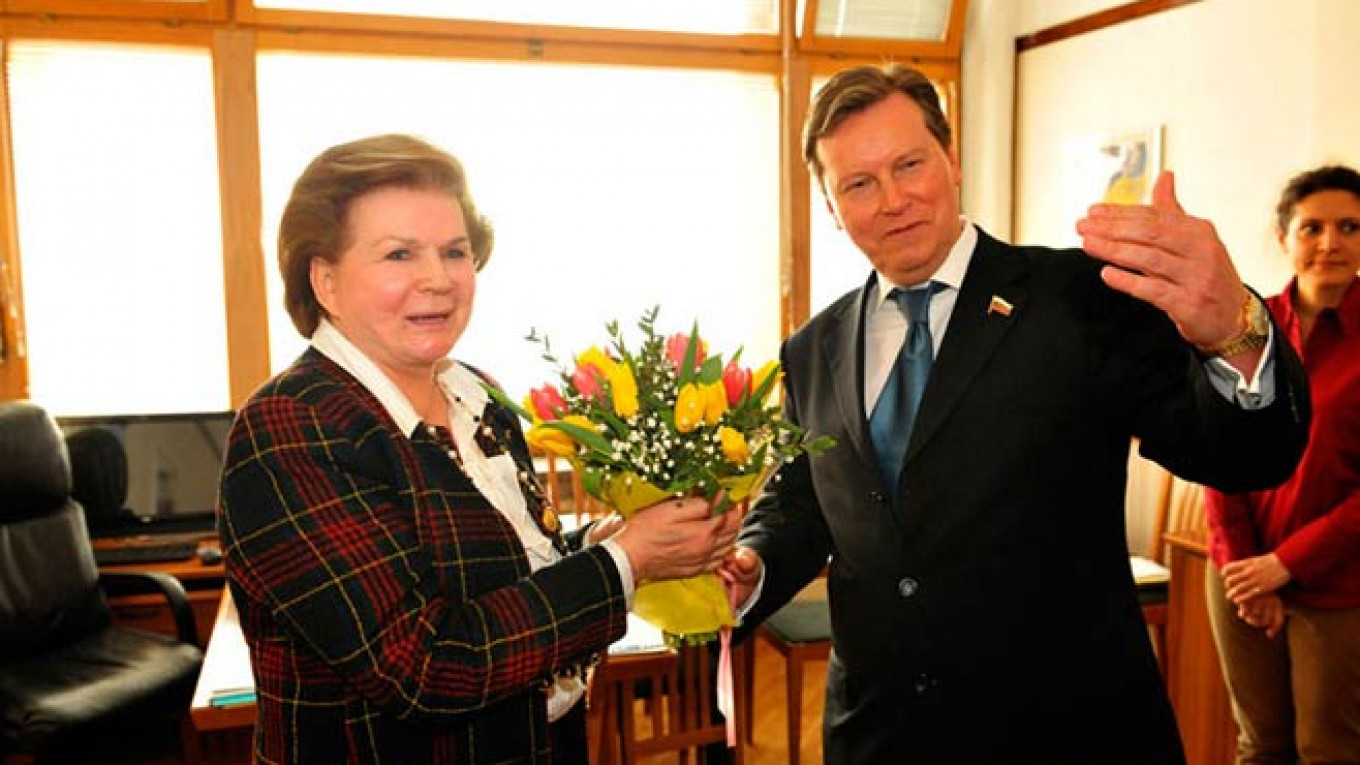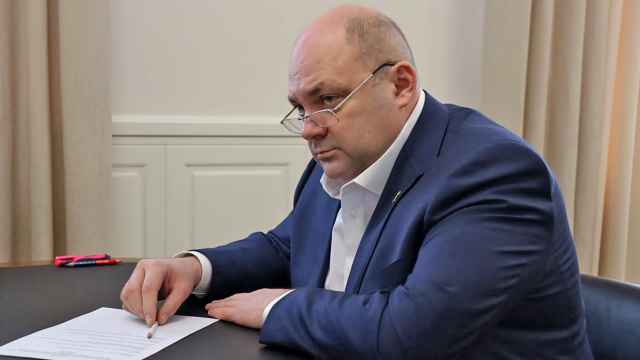Russia's first anti-sexual harassment law has been submitted to the State Duma, despite concerns among critics that its terms will be used to deport foreign workers unfairly.
The changes will protect the honor and dignity of "the more beautiful, but weaker sex," said Oleg Nilov, the bill's author and a deputy from minority party A Just Russia, on his blog.
The bill, which would apply only to women being harassed by men, defines harassment as unwelcome contact or attempted contact, requests for sexual favors, and other verbal or physical conduct of a sexual nature.
Additional punishments would be incorporated into the legislation for non-Russian offenders, who deputies believe are more likely to commit serious offenses.
"The millions of migrant workers who speak Russian badly have to rely on body language to make their intentions toward women clear," said Nilov, who submitted the bill on the eve of International Women's Day last month.
"Adopting this law can significantly reduce ethnic tensions in our society."
For a first-time offense, Russian citizens will face either a fine of 30,000 to 50,000 rubles or 80 to 120 hours of community service, with penalties increasing to an 80,000 to 100,000 ruble fine and up to 200 hours unpaid work for repeat offenders.
Non-Russian offenders will also be deported.
Muhammad Amin Madzhumder, president of the Federation of Migrants in Russia, criticized the proposed sanctions as unacceptable and bordering on racist.
"Deputy Nilov's initiative is not based in reality," he said.
"This bill will restrict the freedoms of both Russian and non-Russian citizens and will give the racist elements in the country's law enforcement agencies more opportunity to assert themselves," he said. "All criminals should be equal in the eyes of Russian law."
Immigration and fear of ethnic crime remains a contentious issue in Russia, despite government data proving that just 1.8 percent of crimes reported to police in 2012 were committed by foreign nationals. About 35 percent of Russians seeing migrant workers as a "threat," according to a 2013 survey by state pollster VTsIOM.
About 1,000 people from countries outside the former Soviet Union have lost their work visas since December for committing two or more minor "administrative violations," Bloomberg reported last month. Among them were Westerners working for major international companies and the Lithuanian artistic director of Moscow's Mayakovsky Theater, Mindaugas Karbauskis, who had his visa revoked after receiving five speeding tickets of about 300 rubles ($8) each.
At the time of its implementation, the visa legislation was widely seen as targeting migrants from other former Soviet republics.
But the Association of European Business has now warned its several hundred member companies that the threat of deportation for minor offenses might grow in the wake of the Ukrainian crisis and threat of Western sanctions.
About 30 percent of Russian women have experienced sexual harassment at work, according to a 2012 survey carried out by the Oleg Sukhov legal center. Russia is ranked 61st out of 136 countries in terms of gender equality by the World Economic Forum in 2013, with Iceland grabbing the top spot for the fifth year in a row. The U.S. is ranked 23rd in the world, with Britain and Germany coming in 18th and 14th place, respectively.
Contact the author at newsreportrer@imedia.ru
A Message from The Moscow Times:
Dear readers,
We are facing unprecedented challenges. Russia's Prosecutor General's Office has designated The Moscow Times as an "undesirable" organization, criminalizing our work and putting our staff at risk of prosecution. This follows our earlier unjust labeling as a "foreign agent."
These actions are direct attempts to silence independent journalism in Russia. The authorities claim our work "discredits the decisions of the Russian leadership." We see things differently: we strive to provide accurate, unbiased reporting on Russia.
We, the journalists of The Moscow Times, refuse to be silenced. But to continue our work, we need your help.
Your support, no matter how small, makes a world of difference. If you can, please support us monthly starting from just $2. It's quick to set up, and every contribution makes a significant impact.
By supporting The Moscow Times, you're defending open, independent journalism in the face of repression. Thank you for standing with us.
Remind me later.







